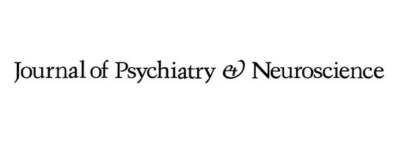Resources
Cross-Influence of Tick and Host Skin Microbiomes During Tick Bites: A New Frontier in Understanding Pathogen Transmission
DOI: 10.1186/s40168-023-01696-7Tick-borne diseases, such as boreliosis (Lyme disease) or anaplasmosis, are on the rise globally. While it is well known that ticks transmit harmful pathogen to humans and animals, less is understood about the microbiome changes that...
Probiotic strains translocate to the tumor and improve ICI efficacy through indole-3-aldehyde release
DOI: 10.1016/j.cell.2023.03.011In recent years, several studies have shown the importance of both the gut and the tumor microbiome in cancer progression and immune checkpoint inhibitors (ICI) response. Thus, microbiomes appear as a new source of therapeutic strategies...
The human tumor microenvironment is colonized by cancer type–specific bacteria and fungi
DOI N°1: 10.1126/science.aay9189DOI N° 2: 10.1016/j.cell.2022.09.005Several studies have shown the importance of the gut microbiota in cancer progression and treatment response. Although bacteria were first detected in human tumors more than 100 years ago, the tumor...
Microbiomes modulate the local immune response, influencing immunotherapy response and toxicity
doi: 10.21037/atm-20-6427Immunotherapy has revolutionized the treatment of several cancers. However, it remains elusive why only some patients benefit from these treatments and why some patients experience immune-related adverse events (irAEs). Microbiomes are under...
Resistance to anti-PD-1 immunotherapy can be attributed to the gut microbiome
DOI: 10.1126/science.aan4236 DOI: 10.1126/science.aao3290 DOI: 10.1126/science.aan370Immunotherapies (Immune Checkpoint Inhibitors, ICI) have become a powerful therapeutic strategy for treating a variety of cancers. It is a very exciting area but with challenges....
Gut microbiota dysbiosis contributes to the tumorigenic process, even in extra-intestinal malignancies
doi: 10.1158/2159-8290.CD-21-0999Numerous metagenomics-based studies have associated gut microbiota dysbiosis with the progression and resistance to immunotherapy of intestinal and non-intestinal cancers. It remains unclear whether the dysbiosis is causing the...
Metabolism and obesity: influence of prebiotics, probiotics and symbiotics on microbiomes and liver health
doi: 10.1371/journal.pone.0260765Prebiotic, probiotic and symbiotic treatments affect intestinal and adipose tissue microbiomes, as well as gut and liver metabolitesThis article by Yde et al., explored the changes in the microbiota composition and metabolite levels...
Metabolism and Major Depression: Blood microbiome and metabolome exploration
DOI: 10.1503/jpn.200159 Response to antidepressant is associated with blood microbiome and metabolome of patients with major depressive episodes (MDE)In this article, Ciocan and colleagues explored the blood microbiome and metabolome in patients with major depressive...
Metabolism and Obesity: the liver microbiome & the development of NAFLD
DOI: 10.1016/j.jhepr.2021.100299 Changes in the liver microbiome as a risk factor for the development of NAFLD in obese individualsIn this paper, Suppli et al., study the microbiome in liver biopsies and blood from healthy lean and obese patients: → Liver...
Metabolism and Obesity: Oral microbiota and fat taste sensitivity
doi: 10.3389/fnut.2022.1046454The relationship between oral microbiome and fat taste sensitivity in obese patients after sleeve gastrectomyBernard et al. explored the relationship between oral microbiota composition & fat taste sensitivity in obese patients after...









